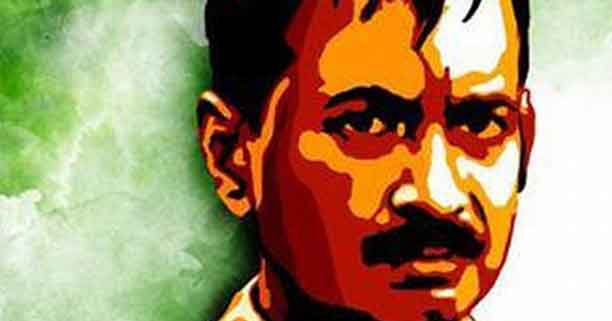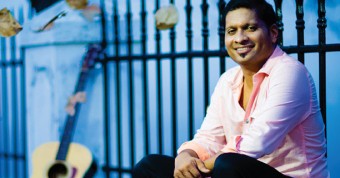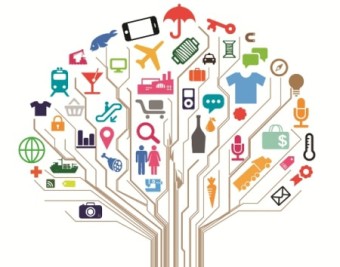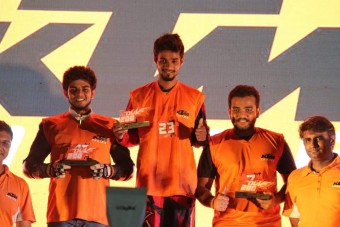Arvind Kejriwal
Which way will we swing?
While having lunch one afternoon, Francis Pacheco, a restaurateur, joined me at a table in his restaurant and spoke to me in hushed tones. “He has done zabardasti and taken the lands for the rally,” Francis said, using the Hindi word for arm twisting.
Francis, who hails from the Santa Cruz area where the recent Modi rally was held, is deeply suspicious of the ruling BJP government and its prime ministerial candidate Narendra Modi.
Living in the village which hosted the rally, and aware of the inside workings ahead of it, Francis thinks the rally was forced down the people’s throats. He said locals were not consulted about the land’s use and that the place was left in a mess after the rally, leaving villagers enraged.
It’s true the BJP swept to power in Goa and that Congress, which traditionally banked on the Catholic vote, was decimated. But the details reveal a far more nuanced reality – and it would be a mistake to assume Goa will automatically join the BJP-mania of the rest of India.
In Catholic-dominated Ilhas Tehsil province in the North, which includes the capital city of Panjim and surrounding areas, the Congress has won three of the five seats, while a fourth was won through courting the predominantly Catholic residents of San André by a candidate who is seen to be more inclusive – Vishnu Wagh. In Salcete in the South, the BJP has secured just one seat out of eight — that of Cuncolim. Another three went to independents, two to the Goa Vikas party and two were retained by Congress.
In other areas like Mormugao and Bardes, where the Catholic population is sizeable, the BJP won by fielding Catholic candidates.
“This should serve to dispel the popular notion that the BJP won over the Catholic vote. In majority Catholic areas, they either did not contest or lost, in the rest the Catholic vote went to Catholic members who newly joined the BJP,” said Jitendra Deshprabhu, a former Congress MLA.
The question is whether these Catholic legislators who newly joined the BJP, will canvass for the party with the same gusto they canvassed for themselves, especially with a prime ministerial candidate as divisive as Modi.
While Goa’s religion and caste fault lines may blur more than the rest of the country, they still exist. The three broad communities are the Catholics, the Hindu elite and the lower and middle-class Hindus.
While Catholics like Francis are skeptical of Modi and the whole ‘Hindutva’ brigade, their vote for a BJP or a non-Congress candidate at local level elections will not necessarily translate into a vote for the BJP at the national level. Catholics are a minority, comprising below 30% of the population. Hindus are about 60 percent and Muslims 10 percent. Here is where caste politics comes in. While a large section of the Hindu upper caste is known to root for the BJP, the lower caste Hindus which form a majority could swing either way, depending on who the final candidate chosen is.
While a large section of this population appears to be relatively enamoured of Modi, especially since he is not a high caste Hindu, the mood could change.
Much has changed since 2009, the year of the previous election. Back then Facebook was just starting out in Goa and the smartphone revolution was in its infancy. This time around the web and social media are sure to play an important role in driving people’s voting habits.
Social media in Goa are abuzz with political commentary from partisans of every stripe. In the local cybersphere, the Congress is a clear loser with BJP-leaning Internet trolls seeking to dominate every forum. Congress supporters online know better than to defend a government that has made news for more wrong reasons than right.
Not to be outdone, loyalists of the Aam Aadmi Party, or AAP, are putting up a brave fight, claiming to be the change and chiding the BJP for vain posturing. “Feku” is a term used to describe Modi for untrue ‘facts’ at speeches and “Pappu” is used to describe a young and unsure Rahul Gandhi. On the other side, lots of folks are blasting AAP for being “anarchist” despite its recent surges of popularity.
Of course, the real world isn’t the online world, and online moods do not necessarily reflect voting patterns, especially when you consider that at least 80 percent of the population doesn’t even have access to the internet (though it must be noted that the percentage of wired Goans is the highest in India). While educated youth may be making choices from what they see online, the traditional fault lines of caste and religion still hold strong.
For its part, the AAP has left everyone guessing. The party inducted, with much fanfare, two reputed personalities — Dr Oscar Fernandes, a fiery activist, and Remo Fernandes, Goa’s top musical celebrity, both representative of Goa’s Catholic middle and elite classes.
Their studied silence in the wake of the AAP’s recent drama-filled protest by the Delhi Chief Minister Arvind Kejriwal and the fear that it will alienate the middle classes from the party is definitely noteworthy.
AAP Goa activist Rajashree Nagarsekar sounded a note of caution.
“It is more important that the party gets down to business and organizes itself rather than jumping into the electoral fray prematurely,” Nagarsekar said.
The AAP is considering a “different” way of choosing candidates, she added. “A prospective candidate will have to show that he is really wanted by the people by proving the support of at least 2,000 people through a kind of bottom up selection of candidates”.

BJP rally in Goa
Going by the state’s history of protest voting, the AAP is sure to make a dent, but whether that will be enough to win seats remains to be seen.
On December 19, Goa’s Liberation Day, when AAP held its first meeting post the Delhi success – a time when its popularity was presumably the highest – it attracted a mere 200 persons.
A humble beginning one may say, but Goa isn’t Delhi and Central elections are not fought on local issues like electricity tariffs or erratic water supply.
There are other players, too, who are fancying their chances. San André MLA Vishnu Wagh has made no bones about his disillusionment with the Parrikar government. He makes no denials when asked about plans to go “national”. But his cards are still close to his chest, and he, too, is biding his time.




